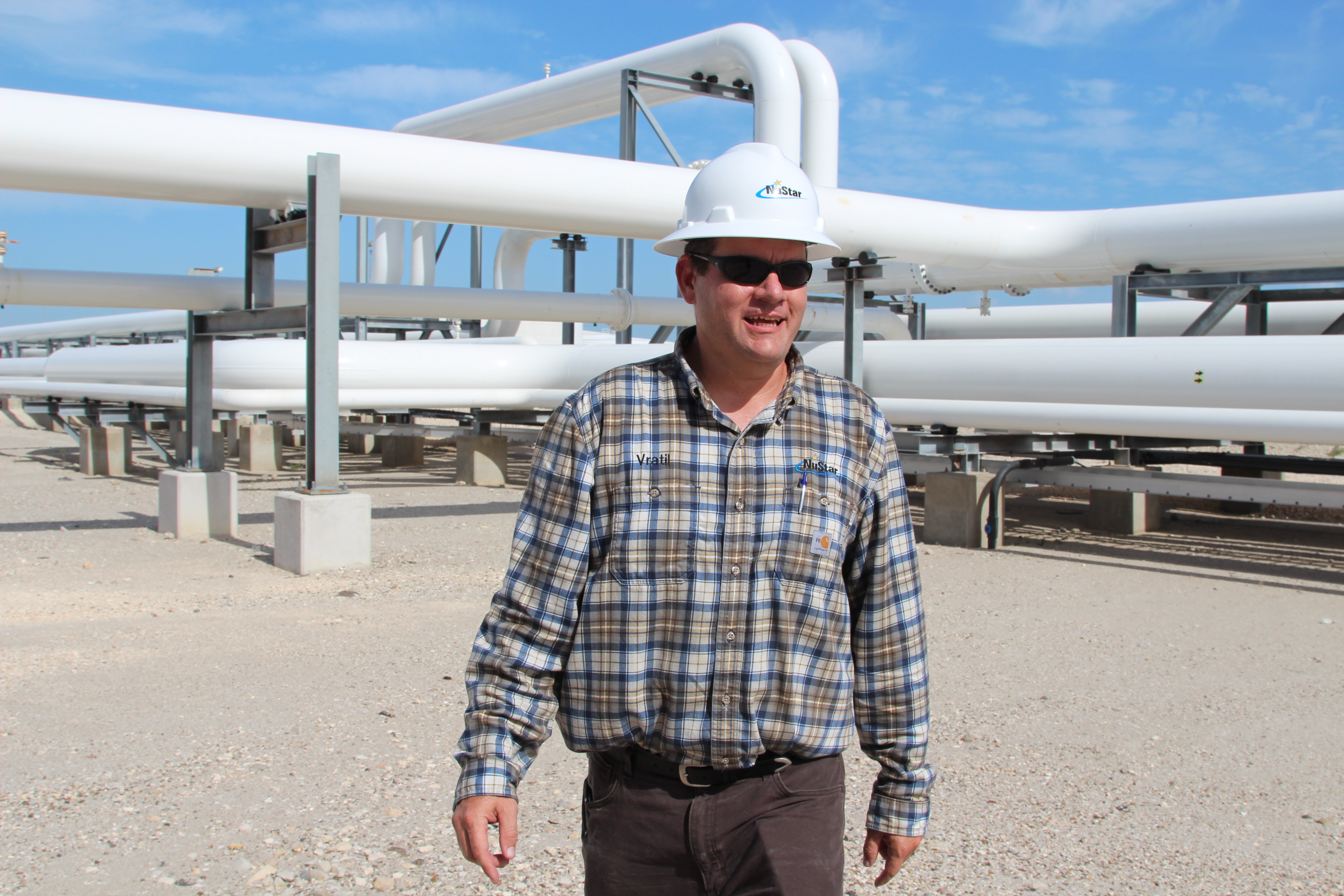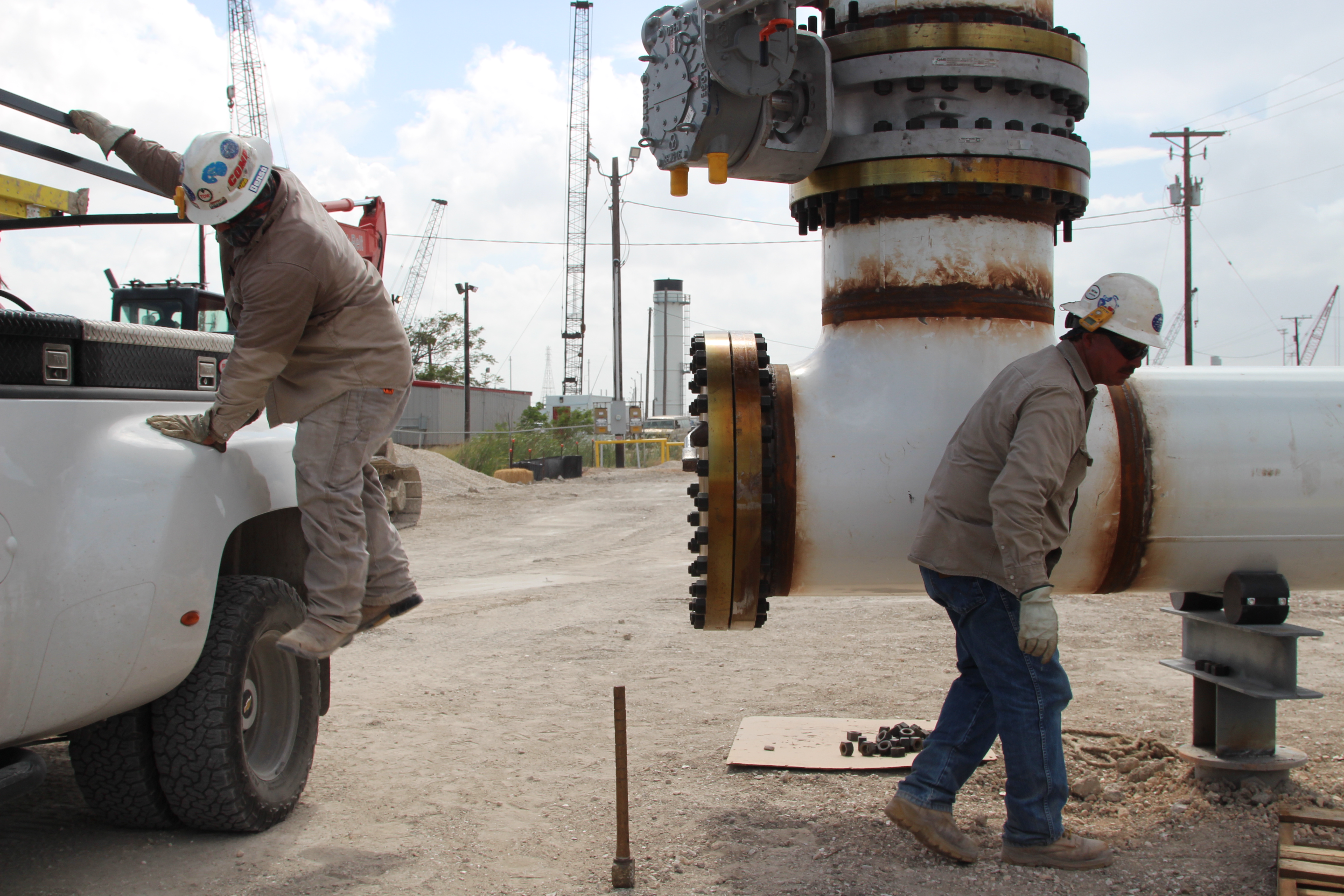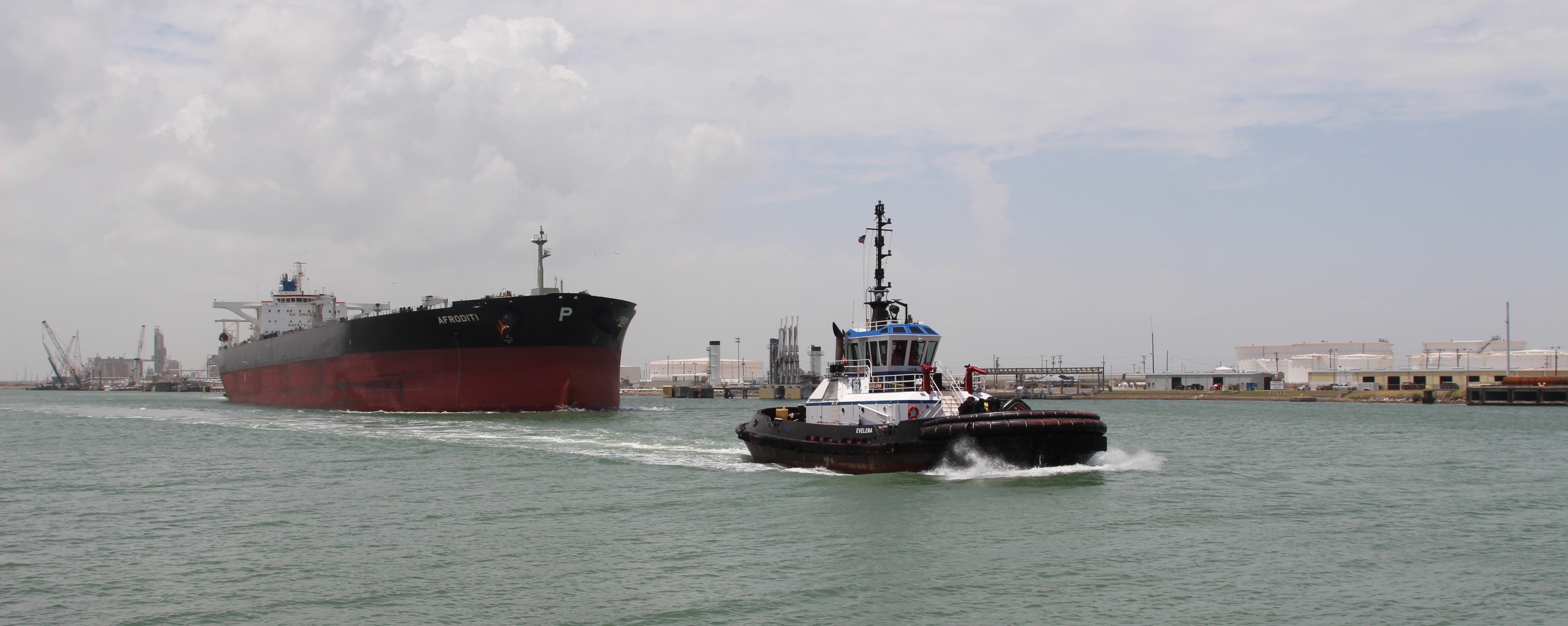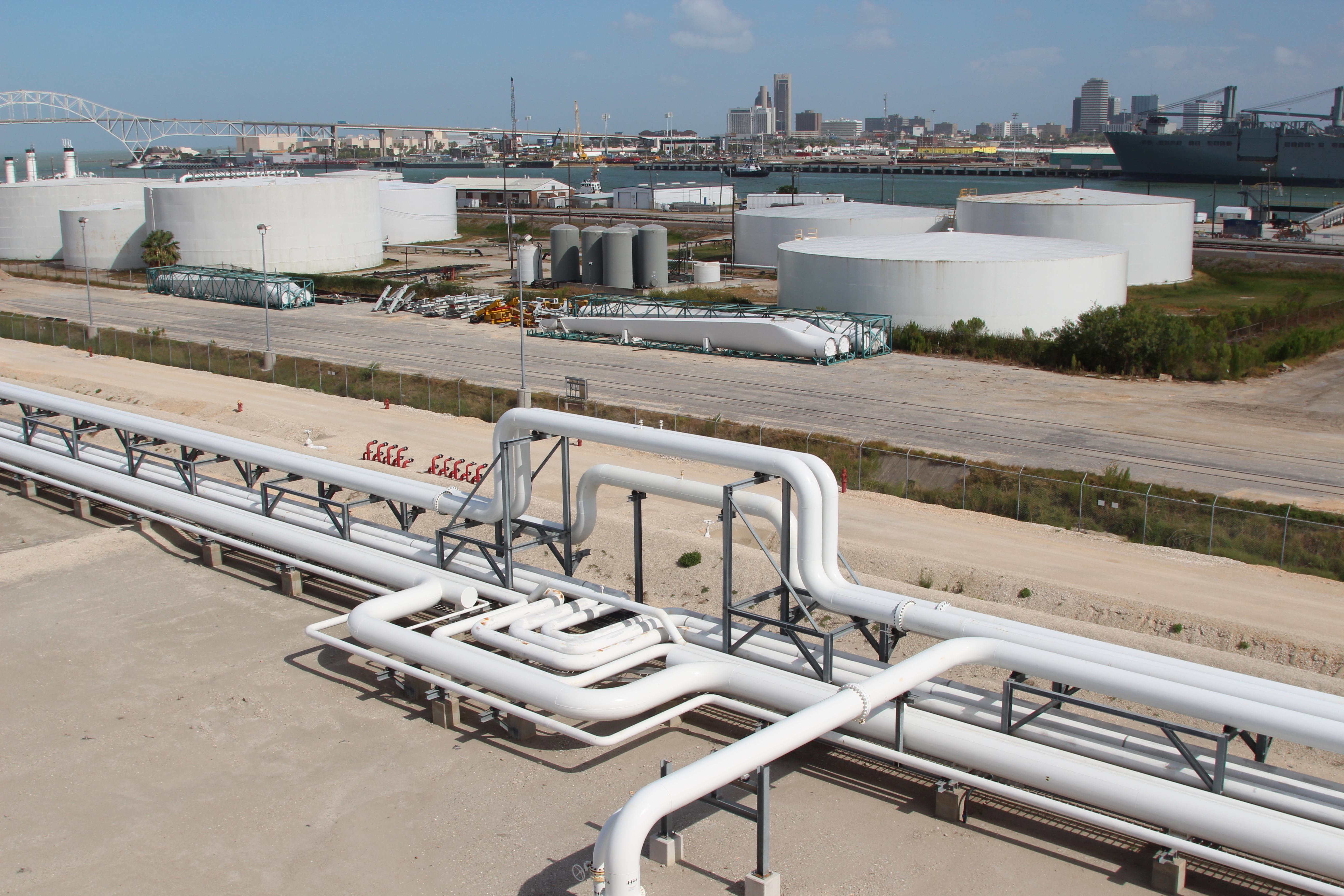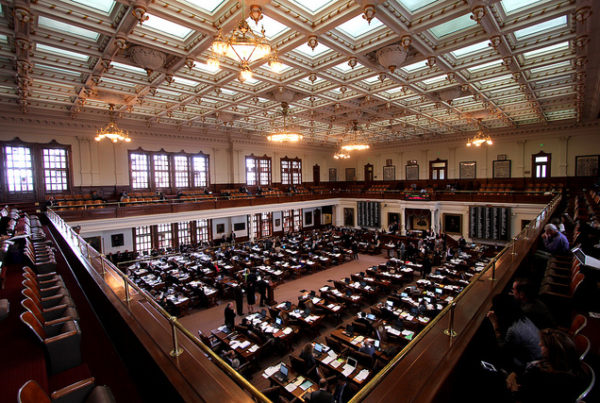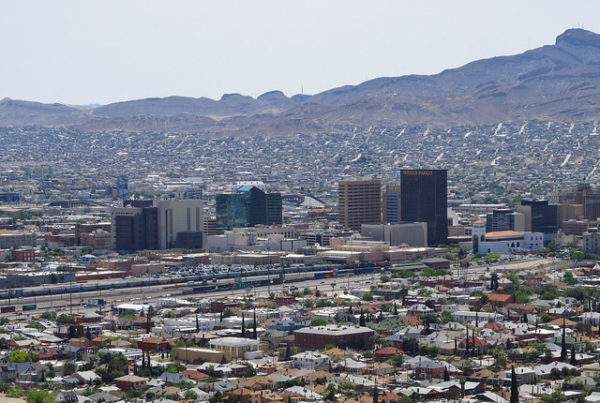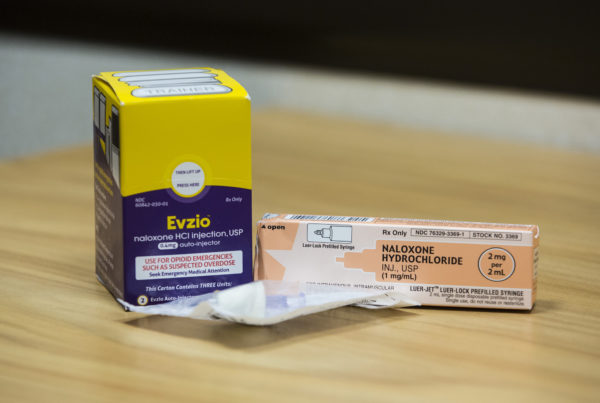The Permian Basin in west Texas — already the nation’s highest-producing oilfield — is seeing a surge in production, and drillers are extracting more crude oil than refiners in Texas can handle. But now, oil companies in the basin have new outlets for that oil, and it’s having an economic impact hundreds of miles away.
“This is not a bubble, this is real growth,” says Port of Corpus Christi vessel traffic controller Mike Stineman, while he scans real-time navigation charts. Radio chatter between vessels, the Coast Guard and the Vessel Control Center provide a nonstop audio backdrop for Stineman’s day-to-day work.
A longtime ban on U.S. crude exports was lifted last year, and today, the port is positioning itself to become America’s main energy export hub. Stineman says the lift of the ban has led to significant activity at the port because it gives companies in the basin a place to send their product.
“There was so much on land that it was like, We need to sell this stuff because we can’t keep it anymore. We don’t have storage space for it anymore,” Stineman says. “So the lifting of the ban broke the logjam.”
But Stineman says the port’s growth has also come from Mexico’s increasing demand for U.S. energy, and that the largest natural gas liquefaction plant in the U.S. is slated to be built here soon. But lifting the ban helped significantly.
Major players in the U.S. energy industry are betting on Corpus Christi’s export potential. The Port Authority recently awarded a 30-year lease to Maverick Terminal to build a pipeline from the Texas coast to Mexico. There are also six new proposals for pipelines that would connect the Permian Basin to the port. And companies like Exxon Mobil, Occidental and San Antonio-based NuStar Energy are investing in new docks and expanded terminal operations.
At NuStar’s corporate headquarters, Senior Vice President for Business Development, Danny Oliver, says Corpus Christi’s growth is an important step toward expanding U.S. oil exports.
“We see Corpus as probably the most important piece of a new export world for U.S. production,” he says.
Back in Corpus Christi, the port’s CEO Sean Strawbridge echoes Stineman’s comment that lifting the ban broke a logjam in the U.S. crude oil market.
“Clearly U.S. crude prior to the lifting of the ban was a frustrated commodity,” he says.
And he’s optimistic about how the market would open up if the new pipelines are built between the basin and the port.
“Not all of those will likely be built,” Strawbridge says. “But even if half of those get built, it will quadruple the amount of Permian (crude oil) coming into Corpus Christi.”
The port projects around 5,000 new jobs — some at the port itself — by the end of 2017, which could bring some economic relief after the recent energy downturn.
“In my world, the more ships the better,” says Kevin Miller, a senior captain who works for a Latin American oil company that docks at the port.
The tankers he works with are part of a fleet now bringing Texas crude from Corpus Christi to 25 countries, including China, South Korea and the U.K.
Today the big issue for the port is that its channel on the Gulf of Mexico isn’t deep or wide enough to handle high-volume vessels when they’re fully loaded. Tankers like these often anchor offshore and have smaller vessels bring the crude to them. The U.S. Congress has authorized expansion of the channel three times, but funding has stalled.
Chris Vratil, director of operations for NuStar, says conflict in foreign markets like Iraq and Venezuela is also driving the U.S. to increase exports.
“With the uncertainty of the international crude market, it seems like there’s going to be a lot more demand for the crude that’s in Texas,” he says. “I’d love to see oil go to about $65, $70 a barrel.”
New or expanded dock space is under construction, in part, to ship out the light sweet crude from Texas that’s prized by foreign refiners. They mix it with a heavier, more viscous oil to produce gasoline and other refined products.
Even at the relatively low price of around $50 per barrel, oil in the Permian Basin continues to flow. The industry’s leveraging this port’s strategic location to move that oil to foreign markets.


